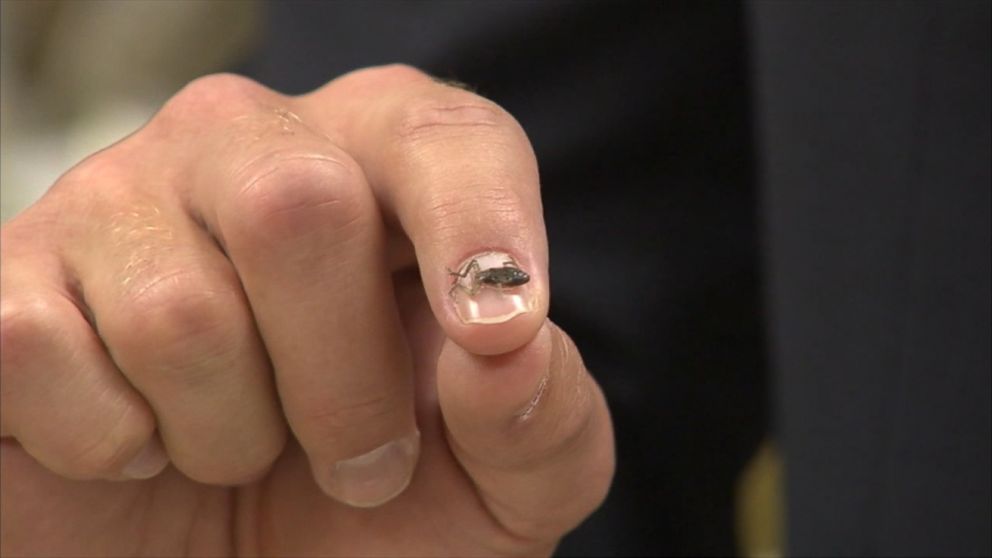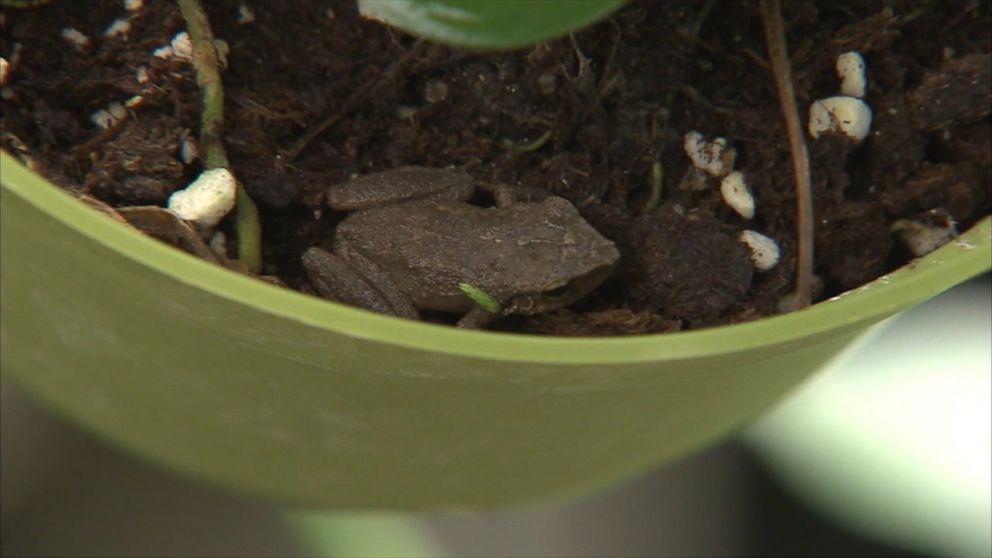Tropical Frog's Shrill Mating Song Keeps Southern California Residents Up at Night
The calls are so shrill that they've been mistaken for house alarms.
— -- An invasive species of tiny but loud frogs has been keeping residents in Southern California up at night.
The coqui frog, a small tree frog native to Puerto Rico and more recently Hawaii, has established populations in Southern California, much to the dismay of the locals thanks to the males’ screeching mating calls, ABC-owned station KABC in Los Angeles reported.
“It is extremely loud, and they will just make that ‘coqui’ call over and over ... sometimes all night long,” Greg Pauly, a herpetology curator at the Natural History Museum, told KABC.
The calls are so shrill that people have mistaken them for house alarms. In one instance, the police were even called, he said.
“Beverly Hills police showed up to try to get the homeowner to turn off this broken alarm, but the broken alarm was in fact just a male coqui frog looking for a female,” Pauly said.

The coqui frog was unintentionally introduced to Hawaii in the 1980s, and it quickly spread across the state’s four main islands. It’s now considered a pest species, according to the Hawaii Invasive Species Council, and home values in some parts of Hawaii have decreased because of the frog’s song, KABC reported.
Experts believe the coqui frog made its way to California by hiding in the leaves of tropical plants flown in from Hawaii, according to KABC. The frog’s tiny size may have helped it arrive in the continental U.S. undetected.

Coqui frogs prefer wet conditions but can survive Southern California’s dry climate by hanging around sprinkler systems at homes and plant nurseries, KABC reported.
Animal authorities are trying to keep the frogs’ reproduction contained until the summer, when the weather will be drier.
While the call may be music to female coquis, it is designed to repel other males during mating season, according to the National Wildlife Federation.




